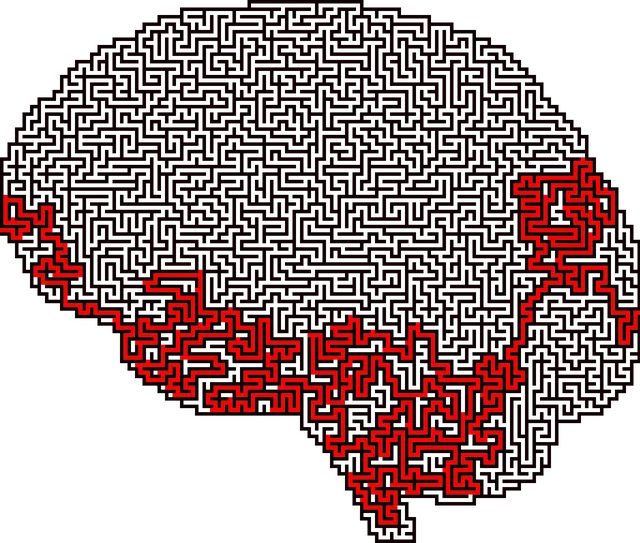The Littleton Kaiser Permanente Mental Health Center prioritizes community well-being through group facilitation, utilizing trained facilitators who create safe spaces for peer support and empathy-building. This approach reduces stigma, teaches coping mechanisms, and enhances resilience among participants while offering personalized risk assessments. Effective sessions incorporate cultural sensitivity, trauma support, and self-care routine development, fostering open dialogue and understanding. The center ensures a structured yet flexible agenda, interactive exercises, and confidential environments to measure success through attendance rates, engagement levels, satisfaction surveys, and qualitative feedback, continually adapting strategies for optimal member support.
At Littleton Kaiser Permanente Mental Health Center, group facilitation plays a pivotal role in enhancing mental wellness. This article explores proven techniques employed by seasoned facilitators to create supportive environments that foster meaningful connections and personal growth. We’ll delve into key strategies, from establishing safe spaces to measuring success, offering valuable insights for those looking to facilitate transformative group sessions at the Littleton Kaiser Permanente Mental Health Center or beyond.
- Understanding Group Facilitation at Littleton Kaiser Permanente Mental Health Center
- Key Techniques for Effective Group Sessions
- Creating a Safe and Supportive Environment
- Measuring Success and Adjusting Facilitation Strategies
Understanding Group Facilitation at Littleton Kaiser Permanente Mental Health Center

At Littleton Kaiser Permanente Mental Health Center, group facilitation plays a pivotal role in enhancing mental wellness within the community. The center recognizes the power of peer support and collective healing, making it a cornerstone of its treatment philosophy. Here, trained facilitators create safe, supportive spaces where individuals can connect, share experiences, and navigate their mental health journeys together.
Through innovative techniques, such as those taught under the Community Outreach Program Implementation, these facilitators foster empathy-building strategies, ensuring every member feels heard and understood. This approach not only aids in reducing stigma but also empowers participants to develop coping mechanisms and build resilience. Furthermore, risk assessment is a crucial aspect of their practice, enabling mental health professionals to provide tailored support while mitigating potential risks within group settings.
Key Techniques for Effective Group Sessions

Effective group sessions at the Littleton Kaiser Permanente mental health center rely on several key techniques to foster a supportive and engaging environment. One crucial method is Cultural Sensitivity in Mental Healthcare Practice, ensuring every participant feels heard and respected, regardless of their background or experiences. Facilitators should create a safe space where diverse perspectives are welcomed, promoting open dialogue and understanding among group members.
Additionally, incorporating techniques like Trauma Support Services can be transformative. Group activities designed to process trauma collectively, coupled with guidance on building Self-Care Routine Development for Better Mental Health, empower individuals to take proactive steps towards their well-being. Through interactive exercises and shared experiences, participants cultivate resilience and develop healthier coping mechanisms, ultimately enhancing the overall effectiveness of group sessions.
Creating a Safe and Supportive Environment

Creating a Safe and Supportive Environment at the Littleton Kaiser Permanente mental health center is paramount to effective group facilitation. It starts with establishing clear boundaries, ensuring confidentiality, and fostering an atmosphere of non-judgment. Facilitators should encourage active participation while maintaining a structured yet flexible agenda that aligns with Mind Over Matter Principles. This involves incorporating various Mental Health Education Programs Design elements, such as interactive discussions, collaborative activities, and opportunities for self-reflection, to promote open communication among group members.
To enhance this environment, facilitators can provide Mental Wellness Journaling Exercise Guidance, offering prompts or questions to help individuals process their experiences and emotions. This not only deepens the therapeutic effect but also strengthens the support system within the group, mirroring the values of the Littleton Kaiser Permanente mental health center in creating a nurturing space for personal growth and recovery.
Measuring Success and Adjusting Facilitation Strategies

Measuring success is a crucial aspect of group facilitation, allowing mental health professionals to assess the effectiveness of their strategies at the Littleton Kaiser Permanente mental health center and beyond. By utilizing tailored metrics and feedback from participants, facilitators can gauge progress and identify areas for improvement. This process involves both quantitative and qualitative methods; tracking attendance rates, participant engagement levels, and satisfaction surveys provide hard data while in-depth interviews and group discussions offer valuable insights into the dynamics of each session.
Adjusting facilitation strategies based on these findings is an iterative process that ensures optimal support for all members. For instance, if initial assessments reveal high stress levels and limited communication among participants, facilitators might adapt their approach by incorporating structured communication exercises and trauma-support services, as recommended in the Risk Assessment for Mental Health Professionals guidelines. This dynamic approach allows for a more responsive and inclusive environment, catering to diverse needs within the group setting.
Group facilitation techniques, as practiced at the Littleton Kaiser Permanente Mental Health Center, offer a powerful tool for enhancing mental wellness. By fostering safe and supportive environments, facilitators can create spaces where individuals feel empowered to share their experiences and support one another. Through key techniques outlined in this article, mental health professionals can significantly improve group session outcomes. Measuring success involves regularly adjusting facilitation strategies, ensuring that each session meets the unique needs of its participants. Ultimately, these methods contribute to the overall effectiveness of group therapy at Littleton Kaiser Permanente, promoting better mental health for all.





